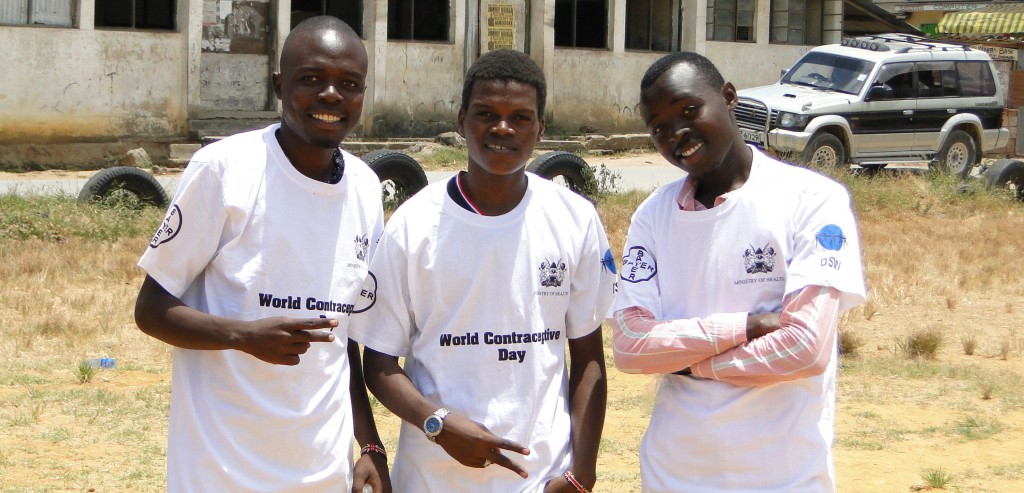During the recent World Contraception Day celebrations on September 26, DSW took time out to talk to some youth in Mombasa on what the day meant to them. While there is no universal understanding of how the day came about, many of them recognise the increasing role they have to play in ensuring a sustainable population.
Juma Hassan (not his real name) recalls growing up in a family of 12 children in the informal settlements of Mombasa. “It was always a struggle growing up, and many times I slept hungry as I could not compete with my older siblings for food”. Now he has a good understanding of the various contraceptive methods available and in future would like to limit is family to a number he can adequately cater for.
Khadija (not her real name) fell pregnant at 14 years of age. Since then, she has struggled to take care of her daughter while at the same time taking measures to ensure she does not fall pregnant again until she is ready. Khadija and Juma spent World Contraception day sharing experiences with other youths and informing them of contraceptive choices available to them.
Also at hand to raise awareness for young people’s sexual and reproductive health and rights including contraception, was Mary Mwende a World Contraception Day Ambassador. Through a program run by Women Deliver and Bayer HealthCare, five WCD ambassadors worldwide are seeking to collect and share digital stories about their generation’s issues and priorities realizing their sexual and reproductive health and rights and gaining access to contraception. The youth in Mombasa shared stories and got tips on how to make their demands heard.
During this year’s celebrations, stakeholders held outreaches to take services closer to the people. In Mombasa, the County Government in partnership with partners including Bayer Healthcare, DSW, WOFAK and FHOK held an outreach that saw hundreds of residents turn out to receive free contraception advice and services, treatment of minor ailments as well as HIV counselling and testing. 72 family planning products were provided on the day, with the most popular being injectables. More than 1,500 contraceptive booklets were distributed as well as 400 condom packs. Similar outreaches were held in Nairobi where more than 2,000 condom packs were distributed. A further 51 clients were screened for cervical cancer, 144 tested for HIV and 60 had FP insertions.
Fertility rate in Kenya has been dropping steadily from 8.1 births per woman in 1977 to 3.9 births per woman in 2014. Conversely, the percentage of married women using contraceptives has risen from 27% in 1989 to 58% in 2014. With the devolution of health services to the counties after promulgation of the new Kenyan Constitution in 2010, it is hoped that more localised solutions can be found to increase contraceptive uptake and minimise unmet need.










